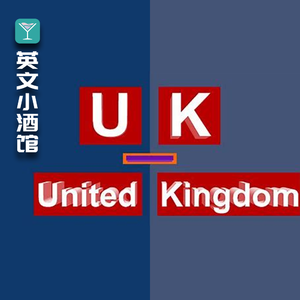可以搜索公号【璐璐的英文小酒馆】或者添加【luluxjg2】咨询课程or加入社群,查看文稿和其他精彩内容哦~

The other thing I often hear, in some of the old war movies, you hear some soldiers say "Blighty".
Yes, that's a really old historic slang. And it's always used by soldiers in the First and Second World Wars, and it just means Britain. So they would say "go home to Blighty".
So it means the country.
It means the country.
Go home to Blighty.
Yeah. And that actually comes from Urdu.
乌尔都语?
Yeah.
Okay.
It's the Urdu word for foreign land, "Vilayati" .
For foreign land. That's a bit weird to go home to foreign land.
Well. If you think about it, this was the era when Britain ruled India.
So if they were speaking, Hindustani, Hindi or Urdu, then probably people in India would say "Vilayati" .
Oh. It's like go back to your own...
Over there.
Over there. Okay, go back to the foreign land, foreign land to us, I see.
Yeah.
See. In Chinese we also have different names for the country, for example, it was like什么此生无悔入华夏,华夏,对吧?
Oh, yeah.
So, we have a lot of those as well.
Yeah, it's the same as in English. They mostly used in sort of poetic.
Poetic, more literary, historical.
Yeah.
Okay. And what about Wales? Wales has his own language, right?
Yes. They speak Welsh.
Which is an impossible-to-learn language.
It is very, very difficult.
Do you understand Welsh?
No.
It's a completely different language.
It's a completely different language. The grammar is completely different. The words are completely different. If you lived in Wales, then you would have to learn Welsh at school up to about 16, it's a compulsory subject, but most English people don't speak Welsh.
Okay. But where does the name Wales come from?
Well. It comes from the old English word for foreigner.
Okay. So basically English and just saying "over there, they are foreigners".



 307
307 0
0